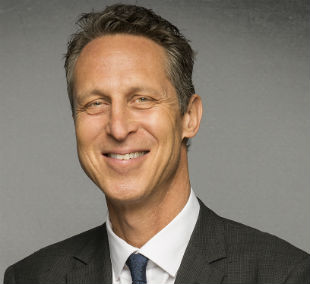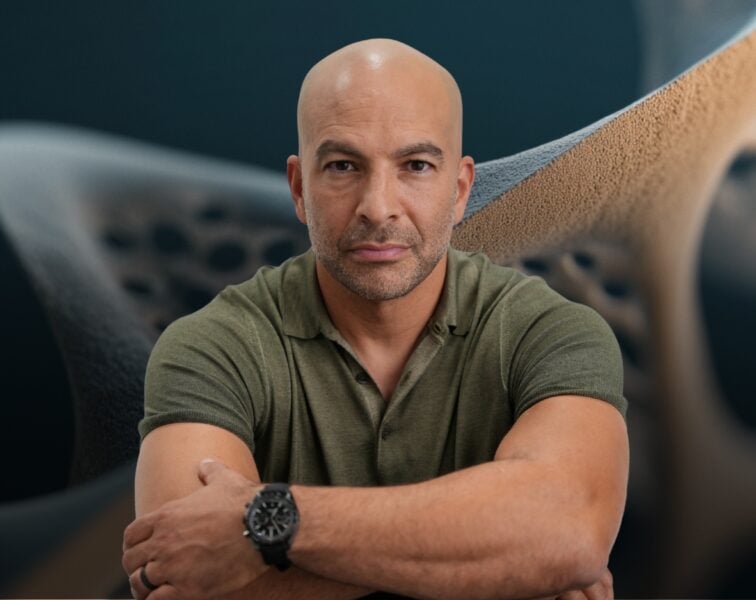In this episode, Mark Hyman, M.D., director of the Cleveland Clinic Center for Functional Medicine and the author of Food Fix, discusses that if we can fix the food system, we can solve many big problems—namely the chronic disease/obesity epidemic, the rising costs of healthcare, as well as the big problems facing the environment. Mark first briefly lays out the health consequences of processed food with a focus on the gut microbiome. From there, Mark discusses the environmental consequences of industrial farming and lays out how we can affect change on the individual level, through policy and regulations, and perhaps most importantly through regenerative agriculture. Additionally, Mark talks about the potential health risks of consuming GMO foods, herbicides, and other chemicals used in industrial farming as well as the environmental consequences, such as the loss of soil, caused by those same fertilizers and methods of farming.
Subscribe on: APPLE PODCASTS | RSS | GOOGLE | OVERCAST | STITCHER
We discuss:
- The negative consequences of the existing food environment [3:25];
- What makes processed food so unhealthy? [9:00];
- The gut microbiome: Inflammation from gut permeability, and how to measure gut health [18:30];
- Steps to fixing a bad gut—The Five R’s [24:30];
- Some staggering health statistics, and which races might be more genetically susceptible [27:15];
- An argument for government regulations and policies to fight back against a massive food industry with unlimited resources (and what we can learn from the tobacco story) [29:00];
- Industrial farming and climate change: The degradation of soil and use of fertilizer [41:45];
- Regenerative agriculture: Could it be the answer to food waste, our health problems, and the environment? [51:45];
- Comparing the “Impossible Burger” to regeneratively raised beef [1:06:00];
- GMO and Roundup—The potential health risks of consuming GMO foods sprayed with Roundup (glyphosate) and other herbicides and pesticides [1:08:15];
- How the livelihood of farmers are being affected by big ag companies and the current industrial farming system [1:16:30];
- The loss of biodiversity in our food, and what “organic” really means [1:19:00];
- What can people do on the individual level to protect themselves as well as affect change to the toxic food system? [1:25:00];
- What role does the USDA play in this “toxic” food environment? And how do we fix it? [1:30:15];
- The top 3 changes Mark would make if he was “food czar” [1:35:15];
- Mark’s rebuttal against the argument that it’s best for the environment if stop farming animals and move to a fully plant-based diet (and his argument for “agriculture 2.0) [1:36:30];
- What is Mark’s overall mission with the work that he’s doing? [1:40:30];
- Bread in the US vs. Europe: Why does bread (and wheat products) taste different and potentially cause less health problems in Europe versus the US? [1:42:00]; and
- More.
Get Peter’s expertise in your inbox 100% free.
Sign up to receive An Introductory Guide to Longevity by Peter Attia, weekly longevity-focused articles, and new podcast announcements.
The negative consequences of the existing food environment [3:25]
Why did Mark decide to go into food research?
- As a doctor seeing patients day after day for 30 years, as a functional medicine doctor, my focus is on why are my patients so sick?
- The majority of them, it has some relationship to food.
- I had to figure out why are they eating the food they’re eating?
- The food system we have is the problem
- –Why do we have this food system?
- It’s because of the food policies.
- –Why do we have our food policies?
- It’s the food industry that influences our government policies through lobbying and other influences that they do across the spectrum of society to drive their products to the market and sell them.
“There’s 11 million people that die every year from eating ultra processed food and not enough of the good food. And I think it’s an underestimate.”
The answer as to why Mark decided to focus on this issue: “I realized I couldn’t fix my patients in my office or in the hospital, or the clinic I had to go to where the source of the problem was.”
Was the evolution of farming all bad?
- No, in fact, Mark says that, “agriculture is a solution, if we do it right.”
The main pillars making the current food environment “toxic”
- Chronic disease: Food is the biggest driver of chronic disease affecting six out of 10 people
- Economic crisis: It’s clearly the biggest driver of economic stress in this country, in our $22 trillion debt.
- Climate change: It’s also driving climate change.
- A food system, end-to-end, is the number one cause of climate change more than fossil fuels, says Mark
- It’s causing massive environmental degradation including loss of bio-diversity (plant species, animal species, livestock species)
- And of course that leads to massive political instability because of our food system of climate refugees, because the food system is driving climate.
- The UN estimates that within a decade or few decades we’re going to have 200 to a billion climate refugees
- Social injustice: It’s driving social injustice in many ways through how it affects our kids’ cognitive development and ability to learn (And there’s huge academic achievement gaps)
- It leads to massive health disparities because poor communities are more affected by these foods and are more targeted by them.
- Cognitive behavioral issues: Violence, conflict, depression, suicide
- And I think our diet has changed so radically, not just in the last 10,000 years, but in the last 40 years with the advent of massive amounts of ultra processed food and that’s driving cognitive behavioral issues, violence, suicide, conflict, etc.
- National security: It even threatens our national security because 70% of military recruits are unfit to fight and they are rejected
The good news?
- All these issues are connected by food, they can all be solved by going to the root and fixing our food system.
{end of show notes preview}
Would you like access to extensive show notes and references for this podcast (and more)?
Check out this post to see an example of what the substantial show notes look like. Become a member today to get access.

Mark Hyman, M.D.
Dr. Hyman is the Head of Strategy and Innovation for the Cleveland Clinic Center for Functional Medicine, and founder and director of The UltraWellness Center. He is the bestselling author of numerous books, including Food: What the Heck Should I Cook?, Food: What the Heck Should I Eat?, Eat Fat, Get Thin, and The Blood Sugar Solution 10-Day Detox Diet.
Dr. Hyman believes that food has the power to change our most important global issues – transforming individual, environmental, economic, societal, and global health, and everything in between. [foodfixbook.com]



